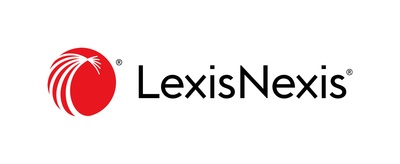
Report highlights increased modern slavery risk in electronics supply chain and tangible benefits of greater transparency from ethical sourcing initiatives.
LONDON, Oct. 16, 2017 /PRNewswire/ -- The electronics industry faces an increasing threat of forced labor in its supply chain according to a new report, Ethical Sourcing and Everyday Electronics by LexisNexis Business Insight Solutions.

The global electronics industry that produces our mobile phones, laptops, tablets and many more items we use daily is one of the largest industrial sectors in the global economy, generating more revenue than any other goods producing sector. The global electronics industry is valued at USD 1.75 trillion. A part of that revenue is made at the expense of people that are part of the complex electronics supply chains that can comprise multiple tiers, hundreds of supplier locations and thousands of individuals.
This report highlights the increased supply chain regulation and the increased awareness of modern slavery and forced labor involved in the mining and manufacturing of electronic products. Fifteen to 20 percent of the world's supply of tantalum, a commonly used mineral in electronics, as well as other key minerals are mined in the Democratic Republic of the Congo and surrounding countries recognized as high risk for conflict minerals and forced labour.
According to recent research by the International Labour Organisation (ILO) over 50 percent of victims of forced labour exploitation are held in debt bondage. The debt bondage is mainly due to recruitment fees resulting in debts that grow at a rate that is unable to be met, because of high interest rates. The Malaysian manufacturing industry, where many international electronics companies manufacture their products, has been identified as a place where bonded and forced labour systemically occurs.
Forced labor generates USD 150 billion in illegal profits annually, the ILO said in 2014, with an estimated USD 51 billion resulting from forced economic exploitation. The financial and reputational risk of forced labour for businesses is high. Investors and consumers are seeking more ethical products and this provides an opportunity for businesses to fully embrace ethical sourcing within the electronics industry. In a recent Trajectory's Global Foresight Survey, 77 percent of respondents from emerging markets said buying ethical brands was important or very important to them.
Mitigating these business and human rights risks and recognising strategic opportunities to increase business profitability start with effectively monitoring and carrying out due diligence of the supply chain.
Mark Dunn, Director at LexisNexis Business Insights Solutions, notes: "Our report shows most electronics companies depend on third party suppliers for the provision of components, raw materials and services that form key elements of their finished products. These suppliers in turn, may outsource to others leading to complex supply chains that can comprise multiple tiers, hundreds of supplier locations and thousands of individuals. All of this increases the risk of forced labor in the manufacture and mining of the raw materials."
Carlos Busquets, Director of Public Policy EICC stated that there are: "Three key incentives for electronics businesses to source ethically are: 1) Brand reputation 2) Customers, including public procurers, are expecting assurance policies and programmes to be in place 3) Increased regulatory measures. In the US, the FAR (Federal Acquisition Regulation) rule introduced in January 2015 which requires federal contractors and subcontractors to take specific proactive preventive measures to detect and eliminate human trafficking and forced labour in their supply chains, has been of particular importance. In countries including France, the UK and the Netherlands new regulation applying to business operations has been introduced as well."
About LexisNexis Legal & ProfessionalLexisNexis Legal & Professional is a leading global provider of legal, regulatory, and business information and analytics that help professional customers make more informed decisions, increase productivity and serve their clients better. LexisNexis Legal & Professional, which serves customers in more than 175 countries with 10,000 employees worldwide, is part of RELX Group, a global provider of information and analytics for professional and business customers across industries.
The Business Insight Solutions division of LexisNexis Legal & Professional serves companies and organizations across the globe, offering premier news, corporate information and public records through a portfolio of solutions, including the flagship and award-winning Lexis Diligence®.
Logo - http://mma.prnewswire.com/media/582369/LN_cmyk_h_pos_ID_98f6a600c1c3.jpg
